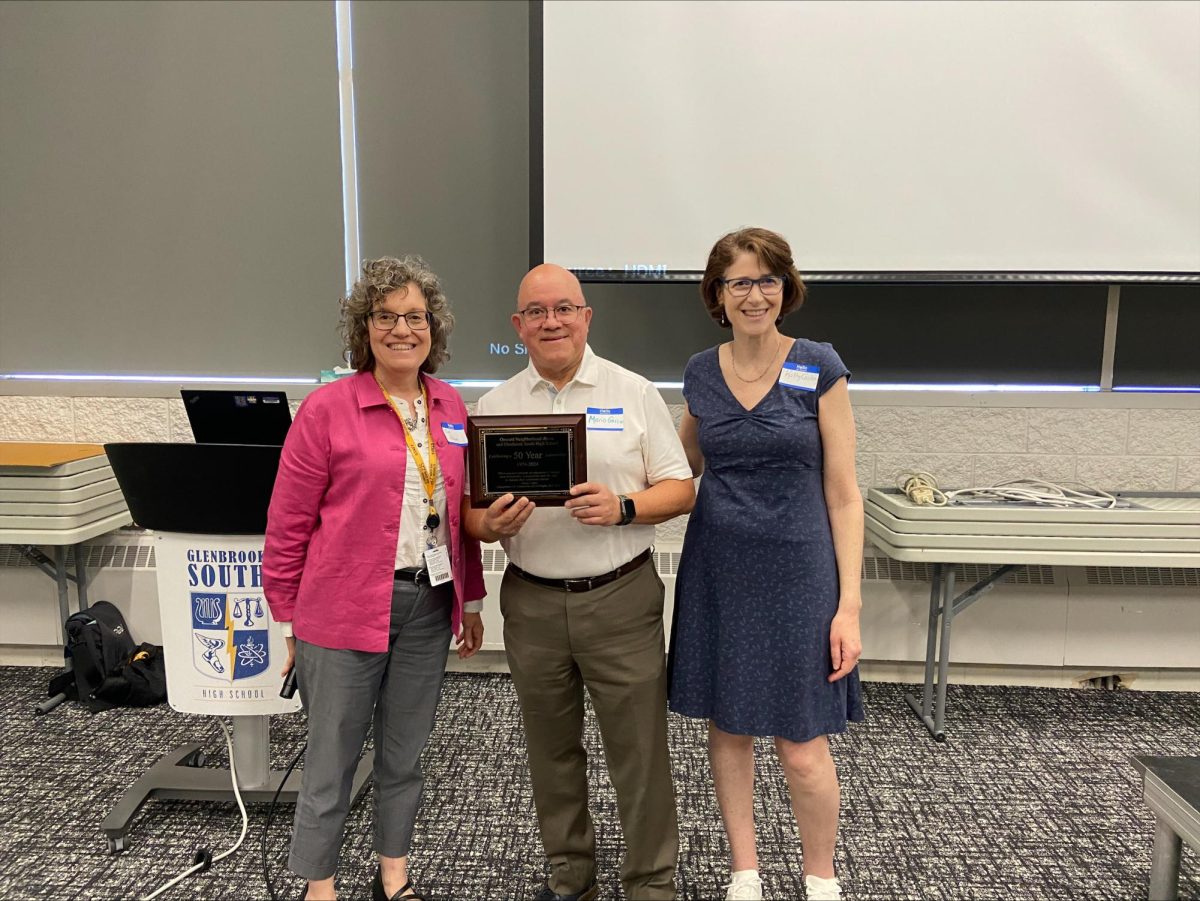Carl Wilkens, the only American in Rwanda in 1994 at the time of the genocide, came to South Nov. 15 to speak in front of students about his experience.
Beginning with historical background, Wilkens discussed American intervention in Somalia, Belgian rule in Rwanda and the withdrawal of UN peacekeeping troops from the Rwandan region.
“We are not defined by what we don’t have but we [are] defined by what we do with what we have,” Wilkens said.
According to Wilkens this idea was the reason why he stayed in Rwanda. Wilkens also recounted in his presentation how he recorded and compiled the stories of individuals he met in his time in Rwanda. Wilkens’ goal was to share those stories with the world.
“It must have been about the second week of the genocide that I got the idea of talking on a cassette recorder to record what was happening around me,” Wilkens said in his book I’m Not Leaving. “I honestly did not know if I was going to survive this dark time, and if I didn’t survive I wanted to leave something for my wife and our three children.”
From South, students in Academy as well students from STAND were present at Wilkens’ speech.
“It was interesting because [Wilkens] rarely talked about the political aspect [of the genocide], he only talked about the social [aspects],” senior Daniel Ahn said.
Ahn felt that history classes always focus on the political and historical happenings such as dates and statistics whereas Wilkens brought in the experiences of victims and stories you would not hear about Rwanda.
“[Wilkens’] theme was the concept of presence and how […] as long as you’re there, something bad isn’t going to happen,” Ahn said. “Wilkens gave the example of the UN peacekeepers and just because they were there, the rebels did not kill nor did the Hutus kill the Tutsis.”
Freshman Maeve Plunkett felt that Wilkens’ presentation was motivational and that the idea of presence was powerful.
“[Wilkens] really was there to help the people and he stayed and […] he had no interest in sugarcoating [the story],” Plunkett said. “He wanted to tell the truth.”
According to Plunkett she hopes to hear more presentations like Wilkens’ while at South.
“It puts a face to the story,” Plunkett said. “We learn about everything in a textbook but it doesn’t really matter as much and when you read it [because] it is from the point of view of textbook writers and they obviously don’t care about that one [issue], whereas Wilkens really cared about Rwanda.”
Matthew Whipple, the director of the Glenbrook Academy, was responsible for bringing Wilkens to South. Whipple reported that the two had originally met at a presentation organized by the Chicago Holocaust Museum and that he had invited Wilkens to speak for the first time three years ago and again this year.
One of Wilkens’ most prominent message was that the power of an individual to be able to make a commitment and be a “change agent,” said Whipple.
“What makes him important is that he has continued from that moment that he chose to stay on the ground and has committed to the people of Rwanda and sharing that story and to making a difference,” Whipple said.
Whipple hopes that students at the presentation would see that any one of them could go on to make a difference or impact the world.
“[Wilkens’] presentation is no longer just about Rwanda, but about making a difference and that is a message that everyone should hear,” Whipple said.





